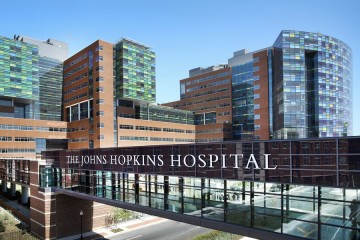The Baltimore Sun editorial board last week weighed in in favor of a recently announced plan to create up to 1,000 new jobs at Maryland hospitals.
The proposal—backed by the Johns Hopkins Health System, MedStar Health, the University of Maryland Medical System, and others—would generate as much as $40 million annually to support new entry-level positions and job training through a modest increase in hospital rates—a quarter of one percent, or $2.50 on a hospital bill of $1,000.
Hospitals would not benefit financially from the proposed regulations.
From The Sun:
On the whole, though, there is reason to believe that this program, if implemented well, could actually reduce overall health care spending. In their proposal, the hospitals note the correlation between poverty and poor health outcomes and suggest that improving employment prospects in poor neighborhoods could help. True enough. But their stronger argument lies in their suggestions of what kinds of jobs the money could be used to create.
Specifically, they point to community health workers, certified application counselors and peer recovery support specialists. The first serve as connectors between health consumers and hospitals to provide education and follow-up to care in ways that reduce the chances of hospital admission or re-admission. Application counselors help consumers determine their eligibility for Medicaid or to navigate the process of obtaining private insurance under the Affordable Care Act. By steering people into appropriate health insurance, these workers can reduce the likelihood that patients will show up in emergency rooms for routine care, thus lowering costs, and they can reduce the amount of uncompensated care hospitals provide, the costs of which are spread among all consumers. Peer recovery workers are people who have experienced substance abuse or mental health conditions who can help others through the treatment process. Because of their personal histories, they can be particularly effective in helping others toward recovery.
The proposal, which asks that the program begin Jan. 1, 2016, is currently being reviewed by the Maryland Health Services Cost Review Commission, a state regulatory body that sets prices for health care at Maryland hospitals. A decision from the commission is expected at its next meeting in October.
"Creating 1,000 jobs may not begin to solve the problems in inner city Baltimore, but it's a start, and it can improve health outcomes at the same time," The Sun wrote. "We urge the HSCRC to move forward with this plan as quickly as possible."
Read more from The Baltimore SunPosted in Health, Voices+Opinion








